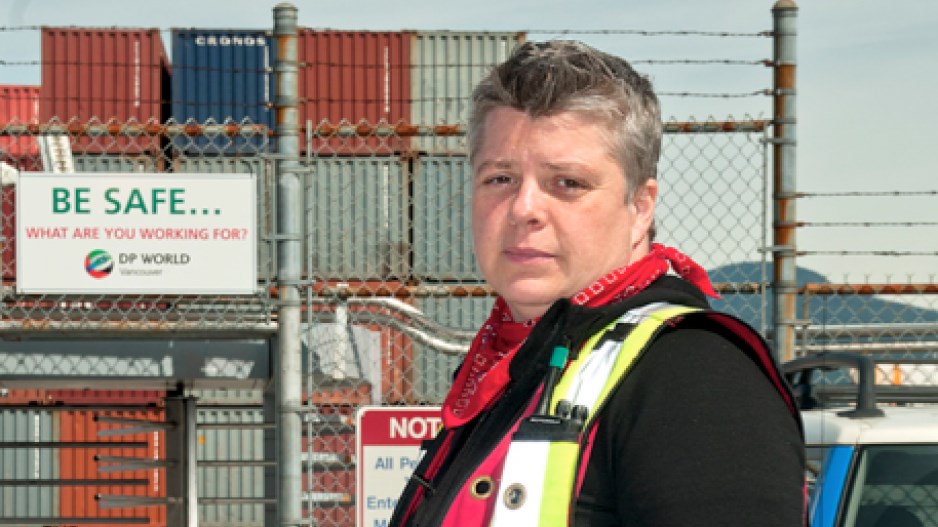After spending a decade working at Port Metro Vancouver facilities, Cynthia Brooke doesn’t take even a second to contemplate what her favourite job might be.
“Stevedoring,” the 48-year-old said.
But it’s been six years since the last time she’s been in that role, loading and unloading goods from docked ships.
She had been going about her day normally at the port facilities when a crane carrying cargo swung into her and pinned her against equipment.
“I was crushed,” the Vancouver woman recalled.
“My pelvis was broken in three places, my spine was broken…and I had a head injury.”
Brooke was a social worker prior to her life as a stevedore. She said that experience was vital when campaigning to stay at the waterfront in some capacity.
A month after the devastating accident, Brooke said WorkSafeBC told her she wouldn’t return to work as a stevedore.
“I fought them every step of the way.”
Meanwhile, the B.C. Maritime Employers Association and the International Longshore and Warehouse Union tried to figure out what they could do with her once physical rehabilitation finished.
“From the outside looking in, a lot of people aren’t aware of what it is we do down here and how many different ways we can diversify our jobs,” she said.
“I needed to show I was physically capable of doing the job so I went and got my first-aid certificate.”
It’s been three years since she returned to work at the port, serving as a first-aid attendant. Last year, she was sworn in as a union member.
“As a woman working in the world, where else can you find a job like this where you’re equally compensated along with your (union) brothers? Everybody makes the same. It doesn’t matter whether you’ve been down here 35 years or three days,” she said, adding seniority is really the only difference between workers.
Brooke admits she can’t help but be fazed when finding herself the only woman on a job site, but she’s witnessed a huge boost in the number of female co-workers over the past decade.
“It’s an incredible amount of pride I have helping women, helping other (union) sisters be able to work down here and stay down here, because I realize for women this is really an ideal profession. It’s a profession we are more than capable of doing.”
In June, she’s letting her first-aid certificate lapse.
Defying what almost everyone else told her, she returns to work as a stevedore this summer.
“I love stevedoring — first aiding is a bit challenging.”




